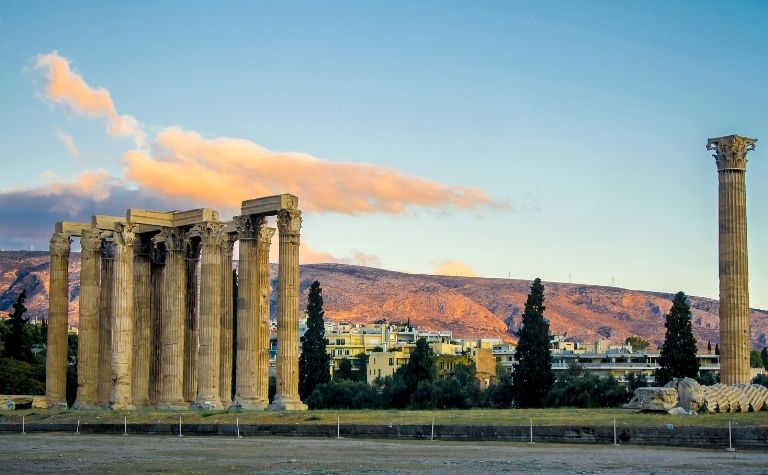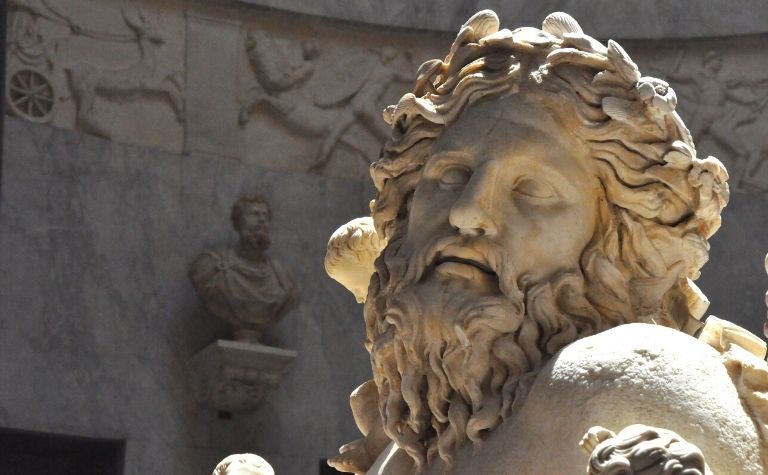Ancient mythologies are well-known for their interesting characters and stories. Two of the most popular are Norse and Greek, but which one of them came first?
Greek mythology is much older than Norse mythology.
While it’s true that people may have worshipped the Norse gods earlier than what is recorded in the oldest surviving Norse literature, the worship of Odin, Thor, and the other Aesir came long after the Greek gods were already popular.
This article will discuss the timeline of both belief systems, what the oldest surviving myth in the world is, and more.
Also, see Norse Gods vs Greek Gods: What’s the Difference? to learn more.

Is Norse Mythology Based on Greek Mythology?
Norse mythology isn’t based on Greek mythology, but the two do share several similarities. This is primarily because both are part of a more extensive system — the Indo-European system of beliefs.
They both feature multiple gods with human-like emotions (lust, jealousy, passion, love, etc.).
Roman mythology is based heavily on Greek mythology, but all the other Indo-European mythologies are mainly separate.
You may find similarities between the gods and goddesses, and there may even be some similar themes and stories, but other than Greek and Roman mythology, none of the others are “based on” anything.
However, as an article on PBS puts it, myths “explain the world and man’s experience.” [1]
With that in mind, it’s easy to see why some myths are so similar. No matter where a person lives, he experiences sunrise and sunset; he sees people die; he notices the changing of the seasons.
It’s only natural that he’d try to make sense of those things, and some people are bound to come to the same mythological conclusions as others. That’s why so many mythic stories are similar to others.
Also, see Is the Norse Religion Still Practiced? to learn more.

Is Zeus Related to Odin or Thor?
As far as mythology is concerned, there is no relationship between either Zeus and Odin or Zeus and Thor.
However, Zeus and Thor share several similarities that allow people to mistakenly link them together as two versions of the same god. Additionally, Thor and Zeus are related in Marvel comics.
Odin and Zeus aren’t related, but they both share the designation of being “the” god of gods — the ruler of the gods.
As such, many people who don’t know a lot about mythology assume they are the same being in two different mythologies.
However, other than being the ruler of the gods, Zeus and Odin have very little in common.
Zeus and Thor are much more similar. Both are strong and fierce warriors, and both are pretty amorous and love the ladies.
Additionally, they are both gods of thunder and lightning, which is more unique than being the ruler of the gods.
In many ways, it makes sense that people would think of Thor and Zeus as being the same god in different pantheons, but even that isn’t true.
As has already been discussed, the Norse gods aren’t based on the Greek gods, even if the similarities are striking.
Marvel Comics
In Marvel Comics, however, Thor and Zeus do share somewhat of a kinship.
In the comics, Zeus is the youngest son of Cronus and Rhea. (This is also true of Greek mythology.) Cronus and Rhea (both siblings and lovers) are the children of the sky god, Ouranos, and the earth goddess, Gaea.
Thor, on the other hand, is the son of Odin and the earth goddess Gaea. (This is not true of Norse mythology.) So, Gaea is both Thor’s mother and Zeus’s grandmother.
Also, see Does Norse Mythology Have Sins? to learn more.
What Is the Oldest Mythology in the World?
The oldest recorded myth is The Epic of Gilgamesh, a Mesopotamian epic poem written around 2000 BC. Enuma Elish, a Babylonian creation myth written in cuneiform around 1200 BC, is also ancient.
The oldest verbally told myths are probably those of the Babylonians, Sumerians, or Egyptians.
Enuma Elish
The Enuma Elish was written in cuneiform across seven tablets sometime in the 12th century BC. It has nearly 1,000 lines and tells the story of how the world was created.
In this story, there are two primary gods, Marduk and his mother, Tiamat.
The two battle for power, and after Marduk wins, he uses Tiamat’s body to create the world (much as Odin and his brothers used Ymir’s body in the Norse myths).
The Epic of Gilgamesh
The Epic of Gilgamesh is much older than the Enuma Elish; scholars date it to sometime around 2000 B.C. [4]
As far as historians know, Gilgamesh is the earliest written story that still survives to the present day. Technically, scholars classify it as an epic poem.
Still, it talks about gods, features a hero’s journey, and explains how and why things are the way they are, which makes it enough like a myth to call it one.
The Ramayana
The Ramayana is a Hindu text that dates back to sometime around 1500 B.C. However, it probably wasn’t written down until sometime in the 4th century B.C.
It’s one of the two most influential Indian Sanskrit epics and is among the oldest myths in the world.
Verbal Myths
Even though The Epic of Gilgamesh, Enuma Elish, and the Ramayana are some of the oldest surviving recorded myths people have today, myths were passed from person to person in verbal form for hundreds, if not thousands, of years before anyone ever wrote these texts down.
As far as scholars and historians can tell, the oldest known myths are those of the Babylonians, Sumerians, and Egyptians.
However, myths are just people’s way of explaining the world around them, so it’s safe to assume that they have been around since people first learned to speak.
Conclusion
Greek myths are significantly older than Norse myths, but even they aren’t the oldest myths people know.
Regardless, all their mythologies are fascinating, which many modern-day readers and movie-watchers have discovered.
Historically, they reveal a lot about how people thought, what they believed, and what they valued.
Also, see Does Norse Mythology Have Demigods? to learn more.
